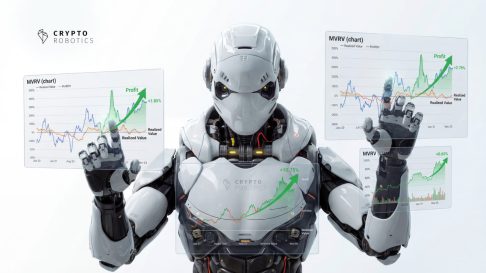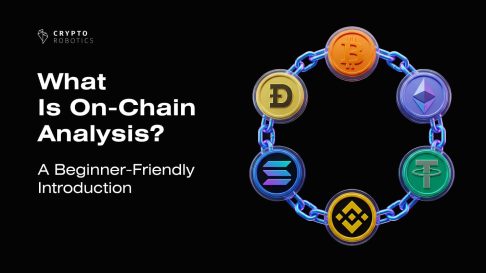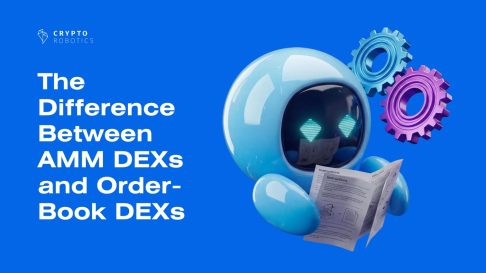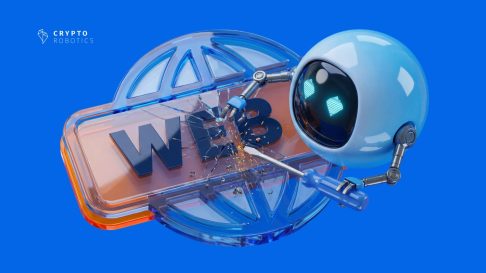Published: August 31, 2024 at 7:16 am
Updated on December 10, 2024 at 7:31 pm




DeFi, also known as decentralized finance, is a relatively new trend in the cryptocurrency industry, which showed rapid growth in users’ interest in 2019-2020.
According to Binance Research, the decentralized finance market experienced growth in 2019, expanding both its customer base and infrastructure. In 2020, there was huge excitement around this area, as in 2017 around the ICO. To date, DeFi tokens are considered the most profitable.
Previously, the DeFi sector was relatively small compared to the scale of the cryptocurrency market, but in 2021 it gained significant growth and attracted many traders and investors with its capabilities.
What has sparked this interest and what are the prospects for DeFi in 2024?
DeFi is a financial tool created on the blockchain. The primary objective of decentralized finance is to become an alternative to the banking sector and change the traditional technologies of the current financial system with open-source protocols. That is, it is open to a large number of people to access decentralized lending and new investment platforms, as well as allows them to get passive income from digital assets. The majority of existing DeFi projects are designed on the Ethereum blockchain, and many new applications in the area of decentralized finance are constantly increasing.
The pioneer of DeFi applications that gained widespread popularity was the MakerDAO platform, launched in late 2017.
Since then, the total amount of funds allocated in the DeFi protocols (TVL, Total Value Locked) has been constantly growing, and faster and faster. So, in May 2018, TVL was $150 million, in May 2019 — $500 million, in May 2020 — $950 million, and in November 2021 the figure reached a record $236 billion. Concerning the most demanded products in this field are lending, decentralized stablecoins, decentralized exchanges (DEX), and token issuance services.
A new proprietary financial system occurs in the crypto market, superior in quality to the traditional one. A characteristic of DeFi products is the absence of centralized management and a huge number of the traditional financial system’s drawbacks, such as the lack of fast transactions, intermediaries, the necessity to confirm identity, and revenue sources.
The attitudes through decentralized finance are based on smart contracts. It is a particular algorithm in the blockchain that is responsible for the parties’ compliance with the terms of the contract. Smart contracts almost eliminate human error.
Yield farming is a kind of investment in DeFi that enables liquidity providers (LP) to lock their crypto in a smart contract (liquidity pool). The returns can be generated as a percentage of transaction fees, interest from loans, or a governance token. The profits are provided as an annual percentage yield (APY). Since many investors add their digital assets to the proper liquidity pool, it leads to the mitigation of issued income.
Also, you should keep in mind that adding your crypto to liquidity pools may cause an impermanent loss. Impermanent loss is a temporary loss of money that arises during providing liquidity to a pool. The greater the volatility of the coin is in the pool, the more chances to lose it. An impermanent loss can be recouped due to the profit (for fees) you get from providing liquidity. In the beginning, many investors select the famous stablecoins (DAI, USDC, and USDT).
But, this situation has changed owing to the most popular DeFi protocols currently operating on the Ethereum network and providing governance tokens that are also referred to as liquidity mining. Digital coins are held in these liquidity pools in exchange for providing liquidity to decentralized exchanges.
The essence of Liquidity mining is when yield farming participants get a reward in the form of digital coins. Liquidity farming became widespread after Compound started issuing its management token COMP, which has shown huge growth.
Staking is an investment method that allows storing digital coins in a special wallet that supports the blockchain network of the Proof-of-Stake (PoS). That is, staking functions like a deposit on which a certain amount of funds is locked in order to generate passive income from it.
Lending & Lending Protocol is a type of earnings that allows generating income through P2P lending. In this case, Lenders and borrowers cooperate via the blockchain. The borrower gets a loan in crypto against interest, leaving a deposit also in digital currency. As far as the lender is concerned, so he invests his crypto in a common pool and makes money on interest.
P2P lending platforms can provide every user with loans and don’t require borrowers to provide their credit history and ID. The only requirement is to provide a deposit. Mostly, it is approximately 150% of the loan amount. In the meantime, the smart contract provides assurance that the lender will bring back his investments with interest even if cryptocurrencies will decrease in price or the borrower doesn’t return the loan.
Margin trading (leveraged trading) on DEX is a means of trading on an exchange utilizing leveraged funds. Owing to leverage, a trader has the ability to utilize in the process amounts which exceed the available ones. Thus, the trader borrows a digital coin from decentralized credit protocols in order to open larger orders and increase profits. Smart contracts regulate the possible risks of losing funds.
Investing in DeFi crypto is the usual acquisition of digital coins when they raise in price.
The attraction of this way of investing in crypto is that within hours of the issuance of the DeFi token, its price can grow by thousands of percent. However, there is also a weakness – the high volatility of new tokens. Thus, you must consider the fact that you can not only make money but run the risk of losing it.
There exist several ways to purchase DeFi tokens. You can buy them on centralized exchanges, decentralized exchanges, cryptocurrency wallets, and trading platforms with various integrated exchanges providing a possibility to acquire a DeFi token. Let’s consider them.
In addition to the options referred to above, you have the ability to purchase DeFi tokens via the Cryptorobotics trading platform. There are fifteen crypto exchanges integrated into this platform, you can find among them only the most popular ones such as Binance, Huobi, CEX, Kraken, Bitfinex, etc. Thus, if you desire to simplify the process of purchasing DeFi crypto and use one or several exchanges for these aims, you should complete these steps:
Here is a full list of exchanges integrated into the Cryptorobotics terminal:
Conclusion
The essence of decentralized finance is to build financial services separate from traditional financial and political systems. This will create a more open financial system. However, before investing in the DeFi sector, you need to consider all the risks and weigh the pros and cons. But, if you invest in good and promising projects, you will be able to make huge profits.
Related Topics
















Access the full functionality of CryptoRobotics by downloading the trading app. This app allows you to manage and adjust your best directly from your smartphone or tablet.


News
See more







Blog
See more






